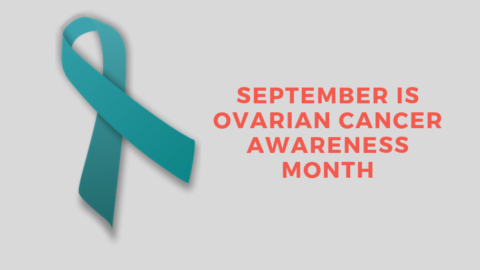December 23, 2020
President-Elect Joe Biden
Linda Darling-Hammond, Ed.D., Team Lead, Department of Education Biden-Harris Agency Review Team
Dear President-Elect Biden and Dr. Darling-Hammond:
The Society for Public Health Education (SOPHE), a 70-year old nonprofit, national association comprised of 4,000 health education professionals working in K-12 schools and other settings, commends the “Biden Plan for Educators, Students, and our Future.” We fully support the Plan’s vision to ensure that no children’s future is determined by their zip code, race, disability, or parent’s income, and to equitably strengthen our nation’s K-12 schools. SOPHE stands ready to work with you and school health teams across the nation to engage collaboratively with teachers, community health professionals, families, and students to improve student health and academic achievement and to achieve social justice, equality, and economic recovery.
As you prepare for the first days of the Biden Administration, SOPHE strongly urges you to build on the framework embraced by the education and health communities, the Whole School, Whole Community, Whole Child (WSCC) model. Our recommendations below reflect tenets of the WSCC model related to health services, preK-12 health education, and cross-agency coordination, all of which are critical to educational success.
- Expand support for School-Based Health Centers (SBHCs) to provide primary care services, including medical, behavioral, dental, and vision care to students in community Full-service community schools are extremely important for supporting students, families, and community members and include the goal that “Students are healthy: Physically, socially and emotionally.” SBHCs provide preventive services for students at risk for poor health and academic outcomes (e.g., emotional trauma and chronic conditions such as obesity, asthma, and tooth decay), and have been shown to improve educational outcomes such as school performance, grade promotion, and high school completion. Eighty-nine percent of SBHCs provide health care access to schools designated as Title I. CDC’s Community Preventive Services Task Force (CPSTF) recommends the implementation and maintenance of SBHCs in low-income communities to improve educational and health outcomes and to achieve health equity. CDC’s systematic research review also concluded that SBHCs result in net savings to SBHC users and the Medicaid program. Given that federally qualified health centers sponsor 51% of all SBHCs and that the Biden Health plan also calls for doubling the investment in community health centers, the synergy of these initiatives will provide a solid foundation for students’ access to health care services and support their educational achievement.
- Increase the number of well-trained psychologists, counselors, nurses, social workers, and other health professionals in K-12 schools, as outlined in the Biden plan. For maximum impact at the school, state, district, and national levels, it is essential to utilize the framework of a comprehensive school mental health system (CSMHS). CSMHSs are evidence-based, and provide quality improvement, accountability, evaluation, and strategies for CSMHSs function successfully nationwide in both large and small school districts, and many state departments of education support their implementation.
- Ensure that students in grades preK-12 receive health education that meets the National Standards for Health Education, are taught by educators competently trained to teach about health, and student achievement is regularly Academic achievement is dynamically linked to health status and health behaviors. Health promoting behaviors developed in childhood and adolescence are essential to academic success and decrease the risk of morbidity and mortality in adulthood. Healthy students are more effective learners; high school students with stronger academic outcomes are more likely to engage in protective health behaviors and avoid health risk behaviors compared to their peers with weaker academic outcomes. Comprehensive health education is integral to the mission of schools as it provides students with the knowledge and skills needed to become successful learners and healthy adults. Further, preK-12 health education is a foundation for improving our national health literacy, which is an overarching goal of the Healthy People 2030 Objectives for the Nation: “Eliminate health disparities, achieve health equity, and attain health literacy to improve the health and well-being of all.” Increasing American’s health literacy also will enable them to better navigate the complex healthcare system and address the infodemic of health misinformation such as in COVID-19 and comply with public mandates in future national health crises. Although the 2015 Every Student Succeeds Act included health education as part of a well-rounded education, only 32-72% of districts have specified time requirements for health education based on the National Health Education Standards (NHES) – elementary (32%), middle (52%), and high (72%) schools. Such deficits exist despite having NHES for decades, disseminating the attributes of an effective health education curriculum, having a tool to analyze and improve their health education curricula, and possessing evidence-based curricula for nutrition, violence prevention, use of tobacco, alcohol and other drugs, and engagement in risky sexual behaviors. To ensure a continued focus on student achievement, SOPHE strongly recommends health education should be included on a regular basis in the National Assessment of Educational Progress for students in 4th, 8th, and 12th grades. “What gets measured gets done:” These metrics will document the level of students’ health knowledge and skills and enable local school administrators and staff to determine what is needed for quality improvement.
Because student health and well-being straddles two major disciplines – education and health – the resources available in both disciplines must be coordinated at community, state, national, and federal levels. SOPHE strongly urges that the U.S. Department of Education lead the support for developing and strengthening a well-articulated infrastructure among federal, state, territorial, and tribal government education and health agencies and large city school districts and health departments that will promote health and address physical and mental health problems, which interfere with learning. This sustainable infrastructure could bring order and coordination to address current issues such as the COVID-19 pandemic and long-term issues that affect school attendance and educational performance. We urge such governmental education and health partnerships be supported through sufficient funding; federal agency and nonprofit organization research, development, and evaluation; and professional development initiatives. Such efforts will help mitigate critical systemic problems in coordination of services, resource development and utilization, role delineation, and strategic leadership that have been exposed and exacerbated by the pandemic.
- At the district and state levels, encourage the development of interagency school health councils to address the health and safety of students. Interagency school health councils help coordinate representatives from the district/state education agency, public health offices, parents, students, and representatives from related professional associations and non-profit organizations (e.g., PTAs) to address student health and safety issues, coordinate funding and resources, and strengthen communication with local school health teams.
- Encourage State Departments of Education and of Health to work collaboratively on issues important to student health, well-being, and safety. Collaborative efforts should be headed by state coordinators from each Department to work on programmatic issues, quality improvement, and data sharing so that school staff can tailor their efforts to address these issues via the School Improvement Efforts should initially address the ramifications of COVID-19 on school faculty and students.
- At the federal level, establish a federal interagency committee on school health and safety led by the U.S. Department of This committee is needed to link high-level representatives from all pertinent federal agencies at the Agency or Division level (e.g., U.S. Departments of Agriculture, Defense, Health and Human Services, Homeland Security, Housing and Urban Development, Interior, Justice, and Transportation as well as the Environmental Protection Agency). The committee should address the health and education of students through communication, coordination of evidence-based programs, funding, and other resources from federal agencies as well as to generate collaborative, effective strategies.
- At the federal level, the U.S. Department of Education should petition the HHS/Health Resources and Services Administration to co-sponsor and fund the National Coordinating Committee on School Health and Safety. In addition to programmatic representatives of key federal agencies, this committee includes stakeholders from some 75 national professional associations and non-profit national organizations to enhance programs in our nation’s schools that promote healthy, safe, and academically successful students.
SOPHE is committed to supporting the Biden Administration’s vision as articulated during the campaign to improve equitable educational opportunities and supportive services for our nation’s students. Addressing the health education and health services needs of students and families and providing critically needed strategic leadership from the Department of Education is essential to achieving this vision. We urge you to carefully consider our recommendations and to uphold our nation’s promise that all children should have the opportunity to receive a fair and high-quality education and achieve social justice. Thank you for your attention to our comments and recommendations.
Sincerely,
Cam Escoffery, PhD, MPH, CHES®
President
***@***he.org“>Elaine Auld, MPH, MCHES®
Chief Executive Officer


